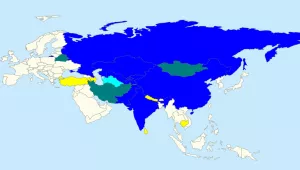The networks of suppliers, financiers, shippers, and others involved in the illicit procurement of WMD-related goods and technologies often operate outside of the United States, which presents several legal and political challenges for the enforcement of U.S. trade controls. Aaron Arnold and Daniel Salisbury will provide an assessment of current U.S. approaches to the jurisdictional challenges of countering WMD-related illicit trade, and will discuss the broader implications of extraterritorial enforcement for global nonproliferation efforts. They find that although conducting extraterritorial enforcement demonstrates a strong commitment to controlling the spread of WMD-related goods and technology, and that U.S. tools and efforts in this area are expanding, such actions can also erode trust and may undermine cooperative efforts to ensure consistent implementation of norms and obligations, like those found in U.N. Security Council Resolution 1540.



